#Umayyad Mosque
Text
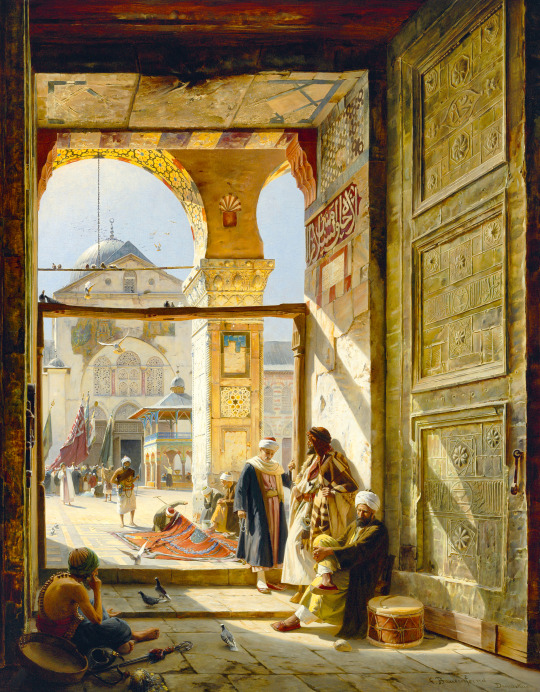
Gate of the Great Umayyad Mosque, Damascus
Gustav Bauernfeind. 1890
Oil painting.
#histort#vintage#1890#painting#oil painting#umayyad mosque#damascus#Gustav Bauernfeind#david tennant#baftas#bafta 2024#eurovision#c4news#bethlehem#ethnic cleansing#doctor who
14 notes
·
View notes
Text
Midday prayers at Umayyad Mosque in Damascus
Midday prayers at Umayyad Mosque in Damascus
Midday Prayers at Umayyad Mosque in Damascus
The Great Mosque of Damascus, also called Umayyad Mosque, is the earliest surviving stone mosque in the world, built between 705 and 715 CE. In addition to being one of the oldest mosques, it is also one of the biggest and is the heart of Damascus old town and a hub of activity.
When women enter the mosque they must remove their footwear and cover up…

View On WordPress
2 notes
·
View notes
Text

4th March
Ṣalāḥ ad-Dīn Yūsuf ibn Ayyūb
1193
Are the birds draped in black as a memorial to the great warrior or a premonition of what would engulf Damascus within a few years?
0 notes
Text
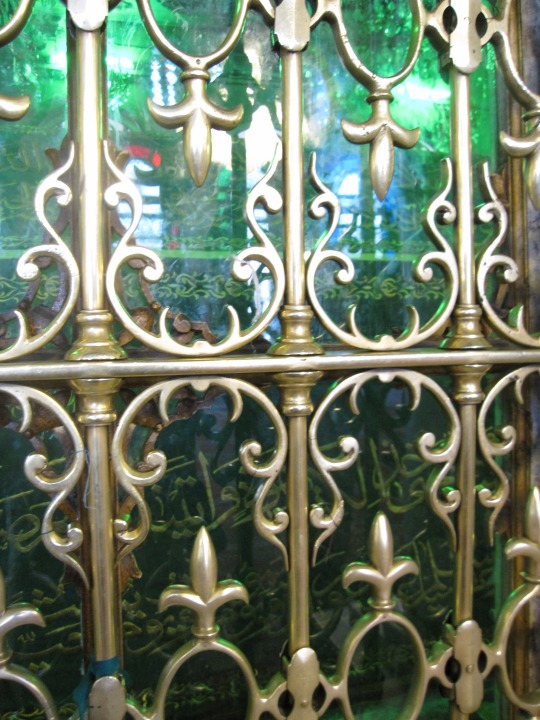
06/18/2010
0 notes
Text
Hello, I haven't used tumblr in a while but I used to be an avid user--
I've been searching online for a way to find out about a few countries but reddit-no dice and I pretty much ran out of ideas after that so here I am on tumblr trying to find some assistance. If you've been or live in one of these countries...Tell me about it :)
1)Yemen (specifically Al-Saleh Mosque)
2)Ughyur (International Bazaar) - I know how unlikely it will be that I find someone on here that knows anything about this country and what's going on but I'm shooting my shot.
3)Al Aqsa Mosque/ Palestine in general
4) Syria (Damascus -Umayyad Mosque)
5)Iran (Nasir Al Mulk Mosque)
6) Somalia (Hargeysa)
Thank you in advance to everyone who is able to help.
#Ughyur#Somalia#al aqsa mosque#Palestine#syria#iran#Damascus#دمشق#Nasir al mulk Mosque#Umayyad Mosque
0 notes
Text
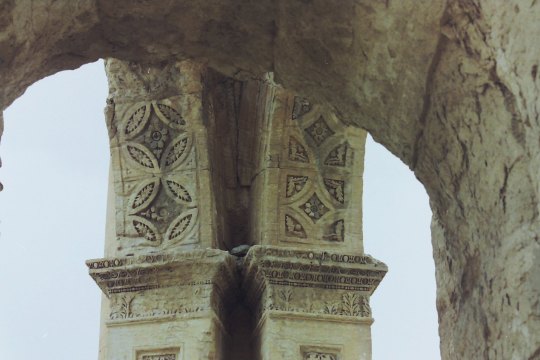
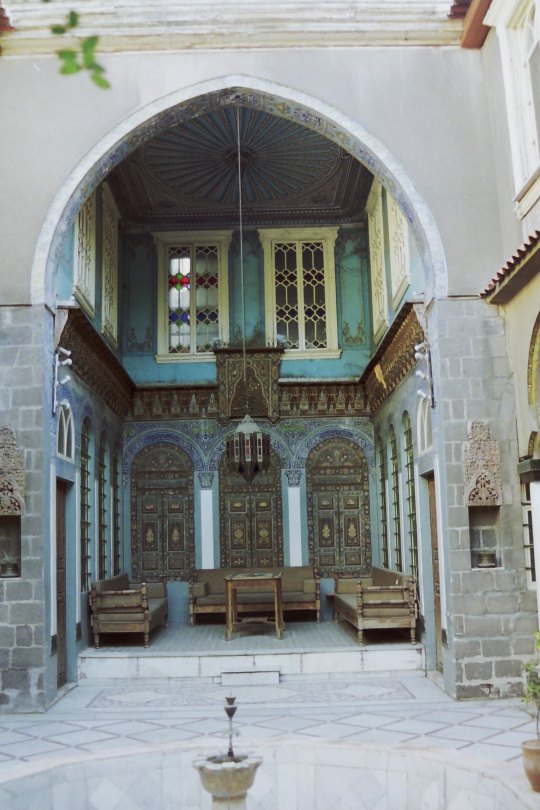
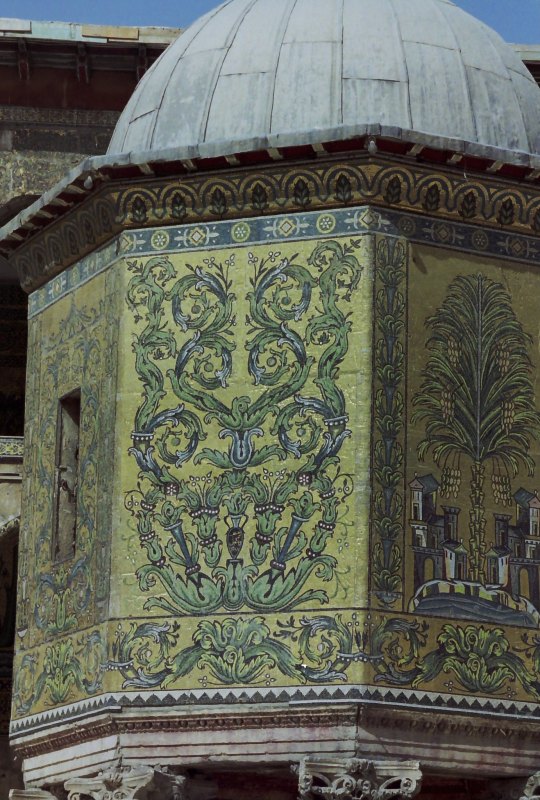
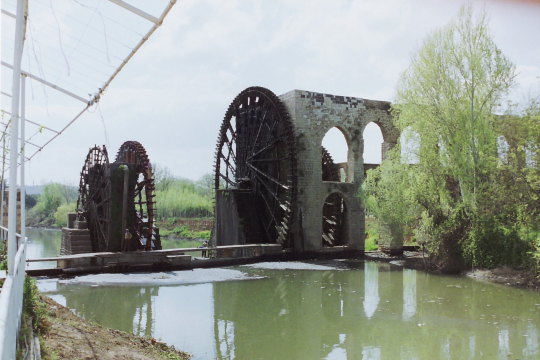
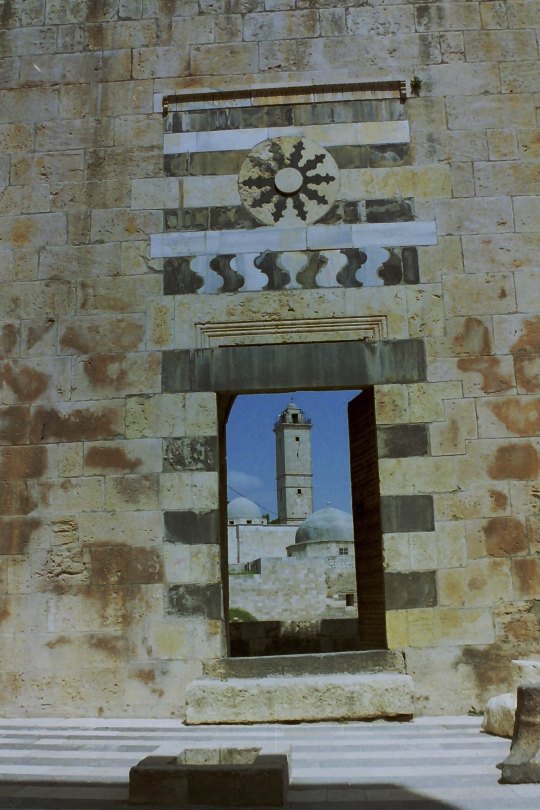
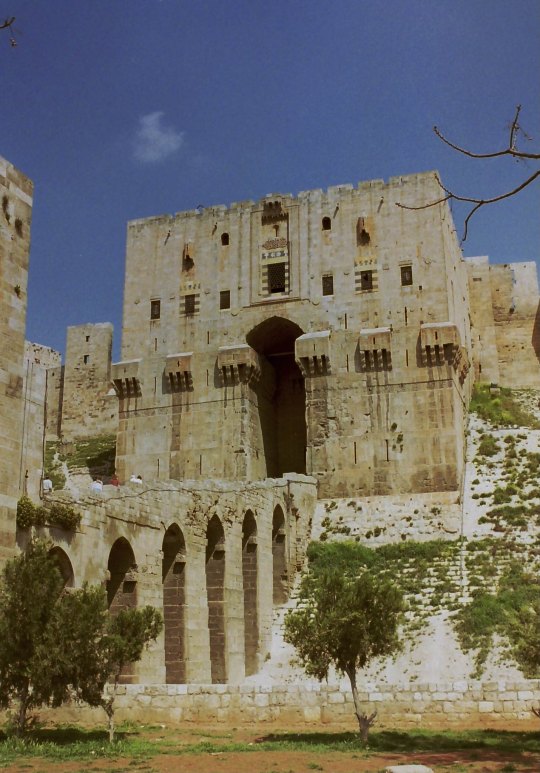
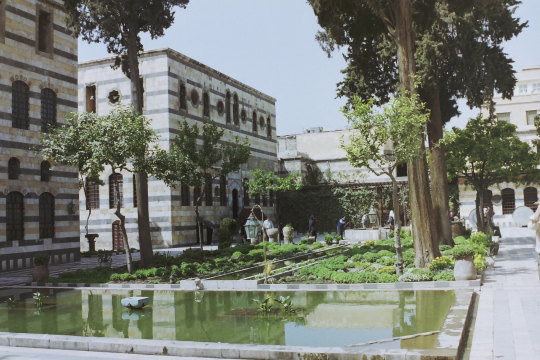
Syria, 1993. (2) (3) (4) (5) (6) (7) by jpotto
Via Flickr:
(1) Palmyra.
(2) Secluded square off Straight street, Damascus.
(3) Ommayed mosque, Damascus.
(4) Hama, waterwheels.
(5) View from the Citadel.
(6) Citadel, Aleppo.
(7) Al Azem palace garden, Damascus.
#ruins#stone carvings#chairs waiting#umayyad architecture#historic buildings#garden#1990s#syria#damascus#aleppo#mosque
26 notes
·
View notes
Text
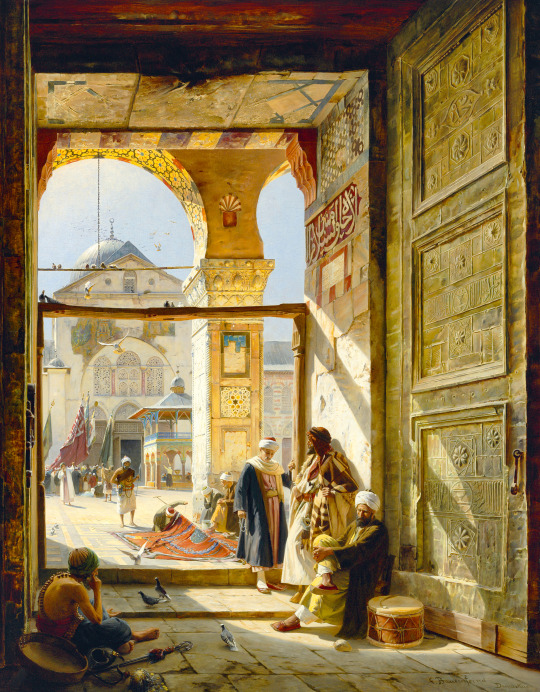
Gustav Bauernfeind - The Gate Of The Great Umayyad Mosque
Dünən doğum günümdə aldığım hədiyyə. Bir neçə il öncə öz evim,otağım olduğu zaman bu əsəri divarda görmək istəyirəm demişdim.
Kiçik detalları xatırlayan, dəyərləndirən insanları itirməyin.
15 notes
·
View notes
Text

The Umayyad Mosque in Damascus, Syria
French vintage postcard
#vintage#tarjeta#briefkaart#postcard#damascus#photography#postal#syria#carte postale#sepia#ephemera#historic#mosque#french#ansichtskarte#postkarte#umayyad#the umayyad mosque#postkaart#photo
2 notes
·
View notes
Text
There appears to have been an extended period of coexistence between Christians and Muslims in the region.
“Christian monasteries and churches were in use in some places until the ninth century,” says Michael. “It’s possible that the mosque we uncovered in Rahat was visited at the same time as Christian places of worship nearby.”
In Israel’s Negev Desert has revealed evidence of the effects of Islam in the region between the seventh and ninth centuries A.D. Researchers discovered multiple buildings dating to the Umayyad (A.D. 661–750) and Abbasid (A.D. 750–1258) periods, including a mosque dating to the seventh or eighth century A.D. Roughly 400 yards away, the team discovered the ruins of a palatial Islamic-style building thought to have belonged to a local ruler, featuring walls decorated with frescoes and stone hallways arranged around a central courtyard. Beneath the courtyard, the team unearthed a 10-foot-deep, rock-hewn cistern system.
#history#archeology#archeologicalsite#discovery#early christianity#muslim#mosques#monastery#holy sight#Umayyad caliphate#medieval period#israel#religious coexistance
4 notes
·
View notes
Note
you didn't actually answer my question , Temple Mount is the most ancient and holiest site for Jewish people -- the Dome of the Rock & Al-Aqsa Mosque were built hundreds of years later on behalf of the Umayyad dynasty's conquest. you mentioned in your response a massacre that happened centuries later, which does not relate to the fact that Jews cannot pray at this site (their utmost holiest site before even the existence of Christians or Muslims). how is "temple denial" something that I made up when you can research it right now and see what it is and that it exists? I ask because this seems to be actually a blind spot for many non-Jewish people simply because it doesn't affect them. I'm not intending to be argumentative and I am sorry if my English is bad in getting across
I'm sorry for being argumentative but a lot of the time, whenever Palestinians are asked about temple mount, there's an implication that Palestinians are colonizers and don't deserve to be on the land. Israelis, if they could, would completely ban Muslims from AlAqsa despite it being the third holiest site in Islam.
AlAqsa is probably the most important national symbol of Palestinians, often thought to be the last straw for Palestinian heritage. So much of our culture has been robbed from us, and (primarily muslims) believe that the demolition of AlAqsa, which is, as Mohammed ElKurd puts it, is one of the last places in all of Palestine where being Palestinian is not criminalized would be a fundamental loss we would never recover from, equivalent to losing our Balad.
I bring up the Ibrahimi Mosque Massacre because there are no restrictions for extremist settlers legally — they operate as an arm of the state and in some cases are encouraged to committ these acts. The "Apartheid Law" basically enshrined that settlements are a national value for Israel. This means that there is no safe haven for Palestinians legally. They're in constant danger of getting kicked out of their home or getting arrested for existing. I cannot emphasize enough how Palestinian freedom is so restricted with the explicit intent of pushing them out of the land.
Temple denial as a concept (after looking it up) seeks to paint Palestinians in a fundamentally bigoted and violent light. Palestinians are not allowing Jews in AlAqsa not because they hate Jews, but because that opens the way for settlers to become violent around AlAqsa, which a lot of the time is already happening. I suggest reading "Why Do Palestinians Burn Jewish Holy Sites? The Fraught History of Joseph's Tomb" (sorry the link is not linking, but you can look it up on the palestine institute webpage). It discusses the use of history as a colonial tool. Here's an excerpt:
It is one of many shrines across historic Palestine – now split into Israel, the West Bank, and Gaza – that has been re-invented as exclusively Jewish, despite a long history of shared worship among Jews, Christians, Muslims, and Samaritans that goes back centuries. And the reason it has been attacked has almost nothing to do with religion, and much to do with how the Israeli military and settlement movements have used religion as a way to expand their control over Palestinian land and holy places.
And a second excerpt describing the political use of religion:
But the claims of biblical archaeologists had a strong role in how the Zionist movement would come to understand and conceive of the landscape.6 As European Jews migrated to Palestine in the first half of the twentieth century, they drew upon biblical archeology's claims. They adopted archeologists' claims that Palestinian holy sites were directly linked to ancient biblical figures. In many cases, they focused on occupying those sites in order to legitimize the colonial endeavor by giving it a sense of deeper history. In many cases, this would mean evicting the Palestinians who actually frequented these holy sites.
And what Palestinians are afraid of:
In 1975, the Israeli military banned Palestinians – that is, the Samaritans, Muslims, and Christians living around the site – from visiting, a ban that has remained in place until this day. [...] Unsurprisingly, the ban has ignited intense anger over the years. This is true particularly given that frequent visits by Jewish settlers to the shrine are accompanied by hundreds of Israeli soldiers, who enter the area and run atop the rooftops of local Palestinians to “secure” the tomb. As a result, Joseph's Tomb has increasingly become associated with the Israeli military and settlement movement in the eyes of Palestinians. Its presence has become an excuse for frequent military incursions that provoke clashes and lead to arrests and many injuries in the neighborhood. Some fear that Israelis will attempt to take over the shrine to build an Israeli settlement around it. This fear is not unfounded, given the fact that Israeli settlers have done exactly that all across the West Bank in places they believe are connected in some way to Jewish biblical history. The notoriously violent Jewish settlements in Hebron, for example, were built there due to the location of the Tomb of the Patriarchs in that southern West Bank town. Following the initial years of settlement, settlers even managed to convince Israeli authorities to physically divide the shrine – which is holy to local Palestinians – and turn the whole area into a heavily-militarized complex. Other shrines have become excuses for the Israeli military to build army bases inside Palestinian towns, like Rachel's Tomb in Bethlehem – which is surrounded by twenty-foot high concrete walls on three sides to block Palestinian access. The village of Nabi Samwel near Jerusalem, meanwhile, was demolished in its entirety to provide Jewish settlers access to the tomb at its heart.
I'm not denying the temple mount is there. I'm just saying that history has been manipulated to erase centuries worth of cultural heritage through scholarship and Palestinians are protective of their most important symbol of resistance and life. Even you saying "Islam and Christianity came after Judiasm" is a dogwhistle for me, because a lot of the time extremists say that to completely erase AlAqsa as an important site to Muslims and intending to deny the site as a shared worshipping site that is quite important to Muslims. Just because Islam came after Judiasm, does that mean it's not legitimate as a religion itself? Islamically, Islam is a continuation of Judiasm, so we don't deny judiasm is important to AlQuds. We just are so concerned with losing our national symbol that we're so protective over it.
Now I bring up the massacre at ibrahimi mosque because, like mentioned in the excerpt above, Palestinians are afraid something like that will happen again. There's no protections for Palestinians, and most of the time they're denied from praying in AlAqsa themselves by Israeli authorities. Israeli settlers themselves come in and disrespect AlAqsa, and as I mentioned, extremists plan on demolishing AlAqsa to build a Third Temple. The Massacre at the Mosque paved way to the "Jews Only" streets I mentioned, including the militarization and basically a complete upheaval of normal life for Palestinians. I suggest looking into how terrible the situation in AlKhalil is, and that arised directly from the massacre.
You cannot separate this issue from the colonial implications of the last safe haven in all of Palestine being open to Israelis. Now when Palestine is free, I doubt there would be restrictions. But right now, there are and to pretend Israelis don't pose a threat to Palestinians fundamentally, would be erasure of the colonization of Palestine.
I'm sorry if that sounds harsh, but even if AlAqsa was built hundreds of years after, it doesn't change the fact that RIGHT NOW Israelis have privilege that Palestinians do not. As soon as that privilege is no longer there, then we can talk about allowing Jews there. But until then, Palestinians are constantly in danger of settler violence and to take away a space (which, Ibrahimi Mosque was one of those sites before Palestinians were massacred) is frankly, an insult and a denial that Palestinians themselves are colonized.
I suggest looking at the links I provided earlier for more in depth analysis. I'm going to reiterate: the only reason it's illegal is because Palestine is colonized and this is our last safe haven that we even aren't completely allowed from entering ourselves.
Most Palestinians are quite heated about this topic. It genuinely is considered one of our last national symbols (so not just religious but also political and cultural), which means that having that taken away (which extremist settlers plan on demolishing it completely, and if they're allowed in, then there are no restrictions on their behavior) would be tantamount to losing our balad, or nation. I've heard Israelis call AlAqsa terrible names over the years and some fully intend on demolishing the site. Even within Israeli politics, it is a genuine goal for some people, including Ben Gvir, so most believe that opening the door for settlers (who are the ones who want the destruction of AlAqsa) would be equivalent to giving it up. You can't ignore that when talking about AlAqsa and the laws surrounding it. The primary reason for this protectiveness is political and cultural.
#palestine#the second intifada happened because ariel sharon forced his way in for political reasons#palestinians were so angry and took it as an insult (which it was) that the second intifada happened
272 notes
·
View notes
Text
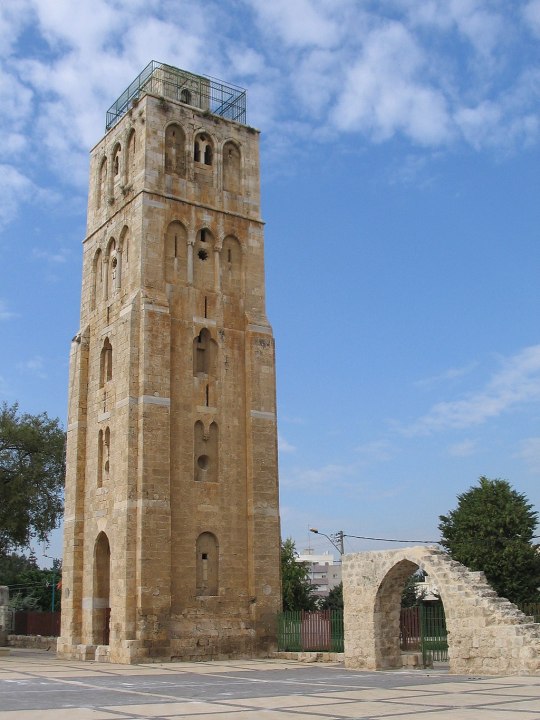

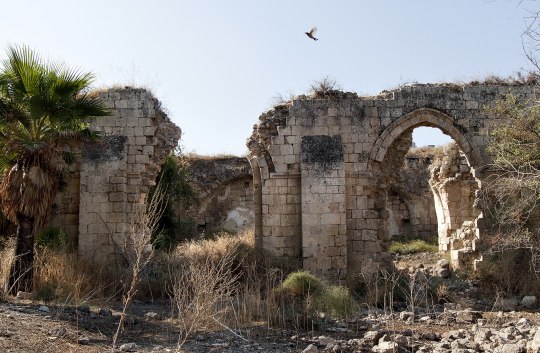
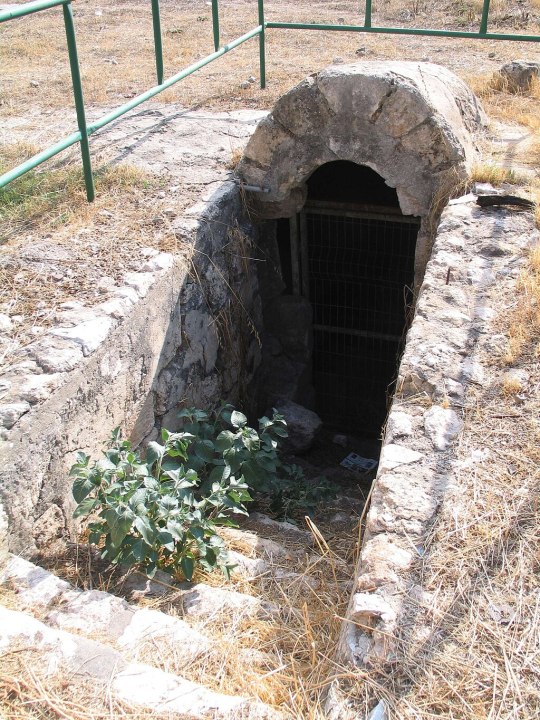

ruins of the white mosque of ramla, palestine. construction was initiated by umayyad governor sulayman ibn abd al-malik in 715-717 ce, but was completed by his successor umar ii in 720.
an earthquake in january of 1034 destroyed the mosque, and reconstruction was completed 200 years later. it since had several destructions, restorations, and expansions, including one restoration by saladin. the last took place between 1844-1918; since then, it has been mostly destroyed, with only its minaret still intact.
the mosque is reputable in muslim tradition; its minaret is referred to as the tower of forty martyrs, after the belief that forty companions of the prophet muhammad are buried under it. within local muslim tradition, it's believed that the prophet salih was also buried here, and a maqām in his honor is located nearby. a religious celebration of salih used to take place here annually before the nakba.
below the mosque's courtyard also exist three large cisterns (last two pictures) which provided water for worshippers, including for a former pool for wudu.
#palestine#architecture#worship#muslim#nakba#religious tombs#my posts#there's another maqām dedicated to salih in acre#also to clarify it’s been ruins since the earthquake#(i think)
261 notes
·
View notes
Text
Please reblog for a bigger sample size!
If you have any fun fact about Syria, please tell us and I'll reblog it!
Be respectful in your comments. You can criticize a government without offending its people.
99 notes
·
View notes
Photo
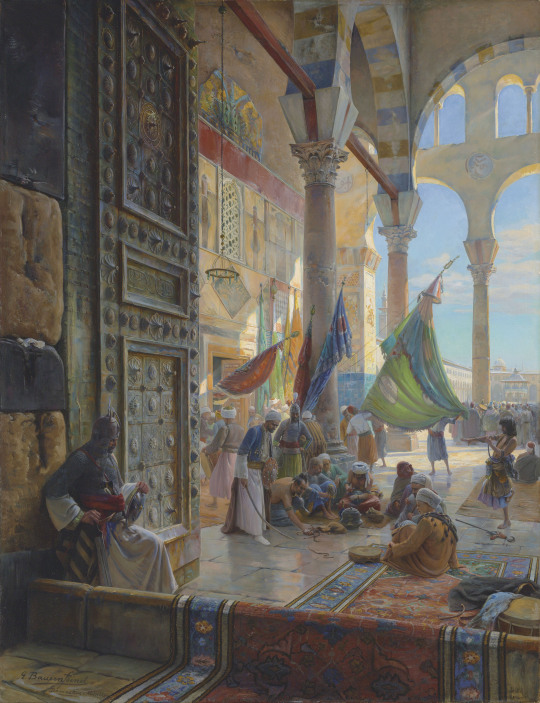
Gustave Bauernfeind, Forecourt of hte Umayyad Mosque, Damascus, 1890. Oil on panel
285 notes
·
View notes
Photo
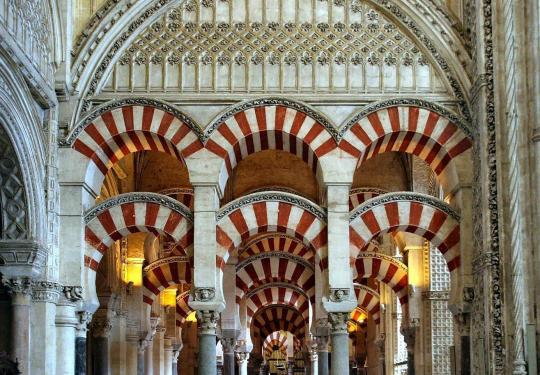
MWW Artwork of the Day (6/24/23)
Umayyad Spain (Moorish, 8th-15th c.)
Interior view: Great Mosque-Cathedral (8th c. CE)
Córdoba, Spain
The building is most notable for its giant arches, with 856 columns of jasper, onyx, marble and granite. These were made from pieces of the Roman temple which had occupied the site previously, as well as other destroyed Roman buildings. The double arches, pictured above, were a new introduction to architecture, and helped support the tremendous weight of the higher ceilings. The double arches consist of a lower horseshoe arch and an upper semi-circular arch. The famous alternating black and white voussoirs of the arches were inspired by those in the Dome of the Rock. They resemble those of Aachen Cathedral, which were built almost at the same time.
103 notes
·
View notes
Note
(i hope these questions aren't offensive or insensitive, but i've been curious about them for a while)
i know that one of the main differences between shi'a and sunni muslims involves hereditary vs. political succession, but i'm not sure about the details, or even the broad strokes
1. what role does heredity play in shi'a beliefs?
2. how do you feel about the idea of hereditary succession?
The thing is that Ali was intended to be the successor of the Prophet following the latter's death. Various hadiths state that Ali was chosen (Hadith of the Two Weighty things, Hadith of Ghadeer Khumm, Hadith of the cloak and Hadith of the Pen and Paper). Initially it was all a political dispute; when the Prophet died, the Prophet's household washed his body and performed the burial rites. It is obligatory for every Muslim to perform it, especially considering that it's the PROPHET. Anyways, so Abu Bakr and Umar weren't present for the burial procession and had other matters to attend (lol) and disputed with a different tribe regarding the issue of succession. The dispute left one dead and Abu Bakr was ultimately nominated for the caliph, whereas the opposing tribe accepted the nomination. The issue regarding this meeting was that every other Muslim, including Ali, was left in the dark, not knowing about the events that took place, thus causing Ali to oppose Abu Bakr and Umar. According to Sunnis, they shortly reconciled, while Shi'as belive that it's nothing more than a forgery intended to erase the reality of the situation, so no Muslim can question them. Ali continued to oppose Abu Bakr from behind, while having the support of the Prophet's daughter. Abu Bakr saw Ali as a threat to his caliph and sent Umar to force his pledge of allegience to him, in which various Muslims threated to burn down his house inside of the Prophet's Mosque. Not yielding to their demands, they tried to break in. However, the Prophet's daughter prevented them from entering until the forced the door open, causing the Prophet's daughter to be damaged by the force of the door, leading to her miscarriage and death six months later. Ali was dragged with a rope around his neck to Abu Bakr and swore his allegience. This would be the first of many calamities that would befall Ali, Fatimah and his descendents. Abu Bakr, Umar and the following caliphs of the Umayyads and Abassids knew the truth, but was too blinded by their avarice and lust for power. The caliph became a monarchy and palaces were built on the money of the poor. A form of capitalism became the root of despair for the Shi'as.
The aforementioned hadiths are clear upon the hereditary roles of the Shi'a Imams through the Prophet's daughter and all Shi'as, whether Twelver, Ismailiyya or Zaidiyya claim that Ali and his children were to inherit the caliphate as a spiritual guide, not kings.
38 notes
·
View notes
Text
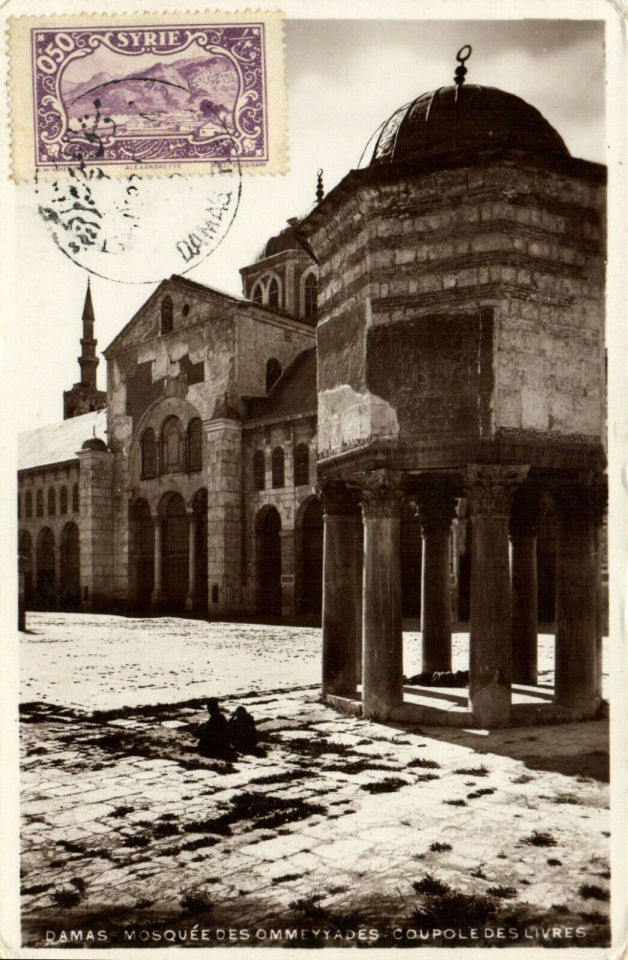
The Umayyad Mosque in Damascus, Syria
French vintage postcard, mailed in 1933
#postkaart#the umayyad mosque#syria#carte postale#french#briefkaart#old#sepia#postkarte#vintage#postal#damascus#photography#mailed#ephemera#umayyad#mosque#postcard#tarjeta#photo#1933#ansichtskarte#historic
1 note
·
View note